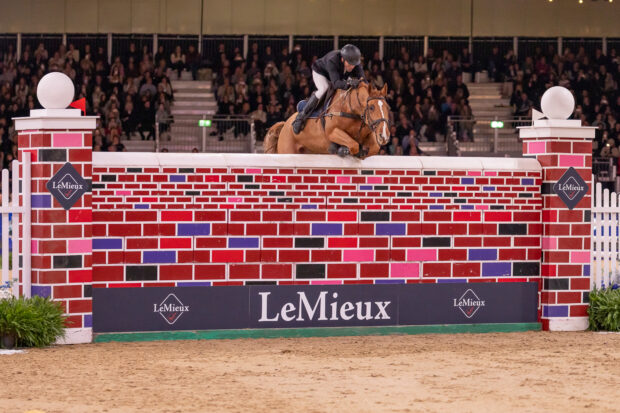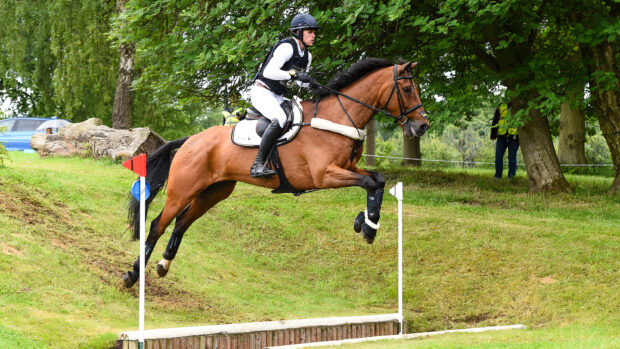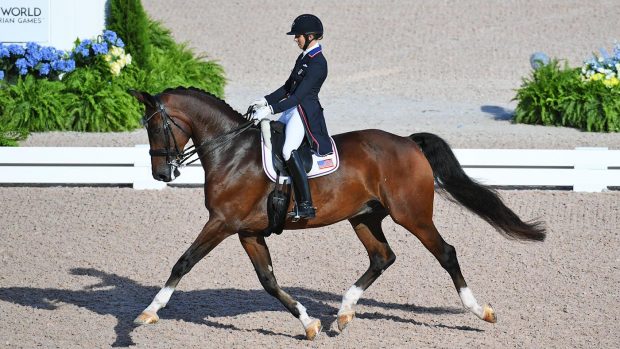SAFER warm-ups, better organisation, greater sustainability and improved employment conditions are some of the changes the horse world is likely to take forward as a result of the pandemic.
While almost two years of Covid-19 has meant stop-start competition, less atmosphere at some events and extra work for organisers and volunteers, it has also led to changes that have been embraced by competitors.
Of the disciplines, showjumping has taken the most improvements on board, with many centres having switched permanently to mandatory pre-entries and published running orders – a measure introduced by British Showjumping to reduce the number of people on site and the time they were there. Entries on the day had often previously meant long waits at shows, with competitors unsure when classes would start and finish.
“We used to take 100 phone calls on show days from competitors asking where classes were up to and now nine times out of 10, we don’t get a single call, it’s saved a lot of time,” Aintree International Equestrian Centre manager Carly Sage told H&H.
“It’s done showjumping the world of good as it’s made people a bit more organised. It should have happened years ago and it’s one measure that will definitely be staying for us.”
Reduced warm-up numbers have also been popular with riders, while many amateurs appreciated the help of a “pole steward” to put up practice fences.
“We’ve found the pros prefer to put their own poles up, but the amateurs like it – the only problem we have is getting the staff to do it,” Ms Sage said. “At the amateur and veteran championships, we charged competitors £1 each to help with costs and we had a lot of people saying ‘thank you very much’”.
Caz Light, who manages shows at Pyecombe, West Sussex, told H&H that although they have dropped-pole stewards, they continued to use four practice fences rather than two, which “makes a big difference”. They have also taken on board competitors’ desire for quieter warm-up facilities.
“It’s beneficial and it definitely works as long as people have somewhere to warm up on the flat first. Luckily, we have our indoor that people can warm up in before going through to have a jump,” she said.
The pandemic helped advance the use of digital resources and while some changes were quickly discarded – such as the time-consuming process of emailing competitors PDFs of dressage sheets – others have remained.
Physical scoreboards are becoming a thing of the past, as dressage and eventing organisers have tried to discourage competitors from gathering.
Duncan Whitney-Groom from dressage organiser Optimum Event Management told H&H he had not reinstated them at events, even after rules relaxed.
“I use QR codes and post the code around the venue – people can scan them and find the results on their phones. I like to get results out quickly and often by the time people have got back to the lorry and untacked, they are there,” he said.
At British Eventing (BE) competitions, measures designed to reduce contact have also become the new normal, as they were found to streamline processes.
“Start fees being combined with the entry fee and print your own numbers are measures that are likely to stay,” a spokesman for BE told H&H. “At the moment, protocols for dressage-sheet collection, information points and how event secretaries work will be up to the organiser.”
Sarah Skillin, who is on the organising committee for Little Downham, one of the busiest BE venues that typically runs four events a year, told H&H they had experimented with various measures during the pandemic to minimise contact, including a fence-judging app, but the one enduring change was doing away with score collectors.
“We have re-deployed score collectors to pick up dressage sheets and time cards and we have cross-country scores collated centrally by someone listening in to the radios. While the fence-judging app was nice, we realised we didn’t actually need it,” she said.
Measures, such as additional stewards to ensure social distancing and enforce one-way systems, have been pared down since the peak of the pandemic, but keeping volunteers happy while having to reduce perks is something organisers have had to juggle and it is one area that has required innovation.
“We stopped doing refreshments and breakfast on arrival for volunteers which was met with fury!” Miss Skillin said. “Partway through the pandemic, we invested in individual thermos flasks for volunteers, with a morning’s worth of tea and coffee, and the flask to keep as a thank-you gift.”
This also helped the event mitigate the use of disposables – something many businesses were trying to do before the pandemic caused a flood of used gloves and masks and a return to throwaway cups.
“We have tried to be sustainable with our measures and we don’t want to keep buying polystyrene cups, but Covid rules said we couldn’t take mugs from people and refill them, so the flasks worked out well from a sustainability point of view,” Miss Skillin said. “When handing out food, we’re also using recyclable hot boxes and wooden cutlery. It’s amazing how much extra paper and printing Covid has reduced as well.”
Global crises are often a catalyst for change and away from competition, the pandemic has also helped shine a spotlight on illegal work practices within the industry.
Lucy Katan, executive director of the British Grooms Association (BGA) told H&H the situation had forced the industry to have a “hard look at itself”.
“Many grooms and employers missed out on access to thousands of pounds’ worth of furlough payments and business funding,” she said. “This consequently has put a focus on the importance of correct employment, and we have noted an increase in awareness from grooms about their own work situations and their rights.”
She said the number of grooms opting for income protection insurance has also increased, with 75% of the BGA’s members now covered, while the Equestrian Employers Association had also seen a sharp increase in the use of its contract creator – implying good working practices were being taken up.
“Overall, it seems that professionalism and compliance is improving as a result of Covid – but the pace of this still needs to increase as unfortunately, illegal employment situations still are far too common,” she said.
Much of the nation has become familiar with Zoom since 2020 and the use of remote platforms is also something that has become embedded within equestrianism.
At previous FEI general assemblies, national federations unable to attend in person could watch online, but had to defer their vote to another national federation via proxy. Now, as a result of the pandemic, the FEI has introduced a permanent remote voting system.
“The national federations voted at the 2021 general assembly to approve removal of proxies as of 2022, precisely because all national federations can now attend, in person or virtually, and cast their votes,” a spokesman said.
The pandemic also sped up the organisation’s move to a new, digital sponsorship model.
“There has been the realisation for some time now that sponsors want something more than just the ‘traditional’ sponsorship packages, and digital platforms can give sponsors more control over data and results,” the spokesman said.
“The move to the digital sponsorship platform would have happened anyway, but Covid and the subsequent cancellation of events pushed it through faster.”
You might also be interested in:

Adam Cromarty: ‘Collecting rings are now safe havens’ *H&H Plus*

Riders urged to stick to ‘vital’ Covid rules as sport restarts
“We would like to thank everyone who has been supportive of the protocols and assisted greatly in getting the sport

‘These are not normal shows’: showjumping boss reveals how sport is emerging from lockdown *H&H Plus*
‘Hopefully we’ve shown we’re doing all we can to give members the opportunities as soon as we can’

5 reasons why a subscription to HorseandHound.co.uk makes the perfect last-minute gift
Horse & Hound magazine, out every Thursday, is packed with all the latest news and reports, as well as interviews, specials, nostalgia, vet and training advice. Find how you can enjoy the magazine delivered to your door every week, plus options to upgrade your subscription to access our online service that brings you breaking news and reports as well as other benefits.




